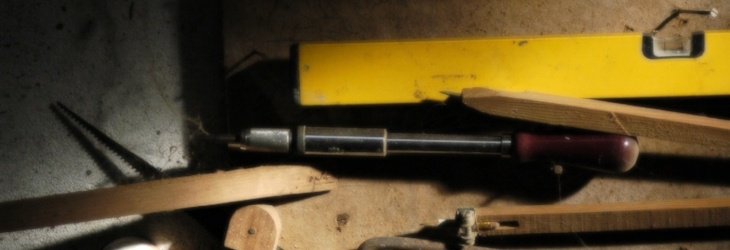If you’re the owner of a small carpentry business, you’re often the first one to the job site and the last to leave.
You’re days are busy – traveling from one job to another making sure that everything is going smoothly.
Whether you’re working with corporate customers or residential clients, each individual job is demanding, and keeping track of the all details can be complicated.
In addition, you’re trying to keep up with all the demands of running your small business.
One of those very important details is protecting the business you’ve worked so hard to build.
And with so many different types of carpentry businesses, some with vast experience, others that are just getting started, the risk of a claim can vary drastically. In short, no two businesses are the same.
So you can’t rely on an ‘off-the-shelf’ insurance policy to protect you and your business. You need a policy specifically designed for your business, and your budget.
Like any business, carpenters need a variety of insurance coverages to ensure their operation is protected. Additionally, rules and coverages can vary from state to state, so understanding Ohio carpenters insurance is essential.
Commercial General Liability Insurance
All independent carpenters and small carpentry companies should carry a Commercial General Liability (CGL) insurance policy, as it would protect you against any lawsuits or financial losses.
A typical CGL policy provides coverage for claims of bodily injury or other physical injury, personal injury (libel or slander), advertising injury, property damage, or problems with a finished project.
For example, you completed a gazebo for a residential client months ago, and today they call to complain. Your customer claims that the structure was poorly constructed, and collapsed injuring guests during a party.
If your client sues you because of the injuries, a CGL policy could cover your legal costs, and pay for settlements and damages.
As a safeguard against liability, CGL enables you to continue your normal operations while dealing with real or fraudulent claims of negligence or wrongdoing.
CGL policies also provide coverage for the cost to defend and settle claims. A CGL policy is a solid, all-around insurance plan for small carpentry businesses that can grow as your business and its insurance needs expand.
Imagine one of your employees forgets to reattach a waterline before completing a bathroom remodel project. The disconnected line goes unnoticed by the homeowners who are out of town for several days. Once they find the damage, it’s not long before you’re receiving calls from their attorney demanding that you pay for all of the cleanup costs, repair work, and the massive water bill.
A Commercial General Liability Insurance policy could not only cover your legal expenses in this situation, but could also cover the damages to your client’s home as well as their water bill.
Commercial Auto Insurance
Commercial Auto Insurance is another important policy that all Ohio carpentry businesses must consider because you’re relying on vehicles to get you from one client to another. It doesn’t matter if you have one truck, or a fleet of 100, you still need Commercial Auto Insurance.
The trucks or trailers that you’re using to haul your equipment should be insured. A Commercial Auto Policy can be used to:
- Insure vehicles for liability to protect the business owner in the event of an at-fault accident
- Cover the physical damage to the vehicles owned by the business
- Or both liability and physical damage coverage
For example, it’s the end of a long day and you’re headed out to check on one final project. On the way, you are involved in a collision with another driver.
You’re driving one of your company-owned trucks, there’s extensive damage to your vehicle, and to the other driver’s vehicle. Your Commercial Auto policy could cover the property damage to the other vehicle, the damage to your vehicle, and any medical or legal costs that may be involved.
Contractor’s Equipment Insurance
Carpenters usually have a fair amount of hand tools, stationary tools and specialized tools. These tools could be located at your business, in one of your vehicles, at your house, or on a job site.
Because these tools move around, the best way to insure them is with an Inland Marine Insurance policy (also known as a Contractor’s Equipment policy or floater).
For example, you left your table saw and some small handheld power tools at your customer’s site. When you returned in the morning, you discover that all your tools are missing. An Inland Marine policy would cover the cost to replace your tools even though the theft didn’t occur on your business premises.
Any one tool might not be worth enough to cause serious financial issues for your business, but imagine an entire truck that’s loaded with all of your tools is stolen. When the total value of all tools is considered, it can be a significant amount so don’t overlook this important coverage.
Who needs Carpentry Insurance?
- Builders
- Cabinet or shelving installers
- Construction companies
- Deck or patio builders
- Developers
- Framing contractors
- Handymen
- Housing contractors
- Molding or trim installers
- Renovators
- Remodelers
- Wood workers
- And many more types of contractors & carpentry businesses
Finding the best carpenters insurance in Ohio can be confusing, and time consuming.
Not to worry, we can help.
We’ll work with you to help you understand the various coverages available, then we’ll tailor an insurance policy that meets all of your unique needs while never losing sight of your budget.
When you have confidence in your business insurance, you have greater peace of mind knowing that you can keep working when a disaster, major claim or lawsuit strikes.
To learn more about your specific coverage needs, and to ensure your insurance coverage complies with common bid specifications, contact one of our Licensed Advisors, or Request a Proposal and we’ll get to work right away.
